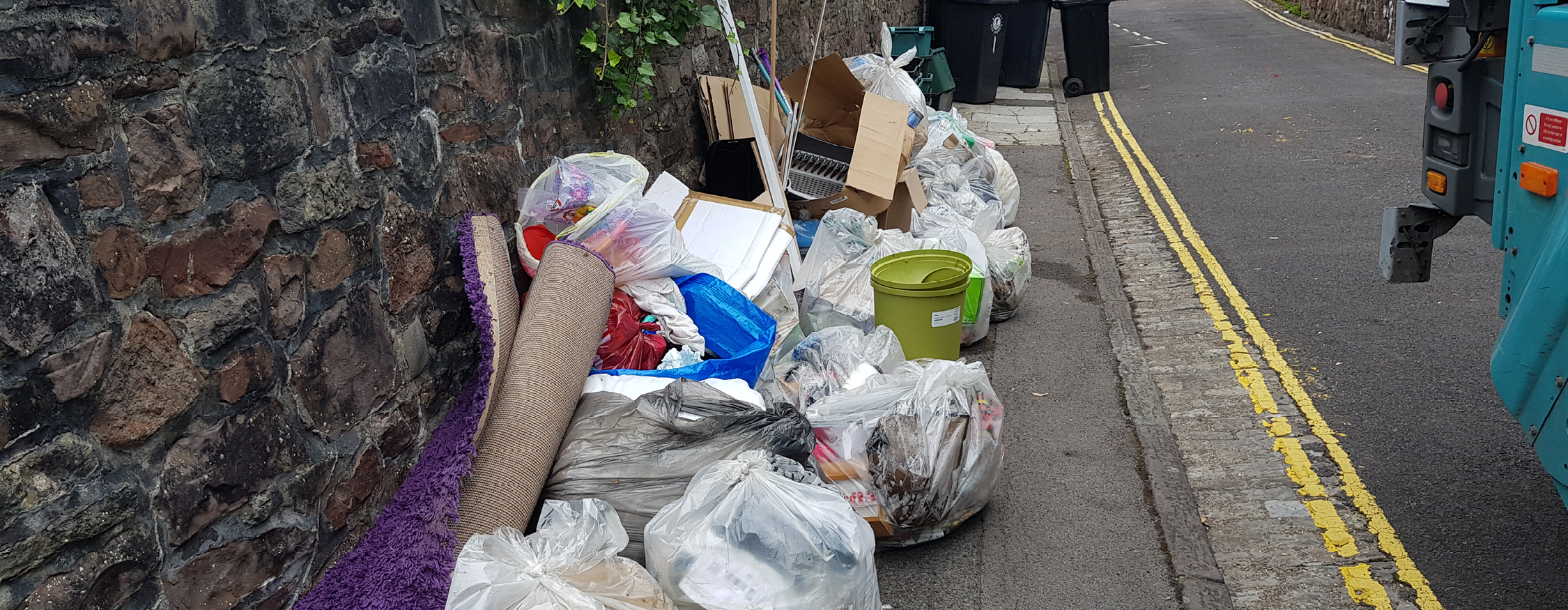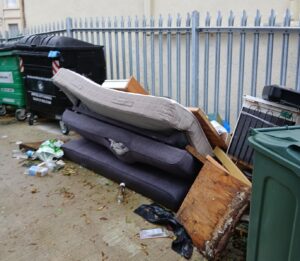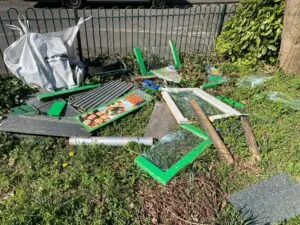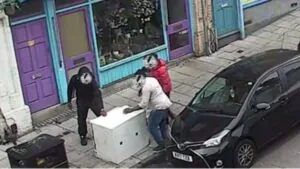What is fly-tipping and why is it so bad for Bristol and for the planet?

What is fly-tipping?
You’ve probably seen the phrase fly-tip, or fly-tipping, on the news or online.
But what does it actually mean?
Fly-tipping is the illegal dumping of waste.
Like this charming number that was left blocking a Bristol pavement over the summer. 🤢

What happens when someone fly-tips waste instead of disposing of it safely and legally?
- It makes neighbourhoods less safe
- It encourages crime
- It makes neighbourhoods less accessible
- It damages the environment
- It’s dangerous for people and animals
- It costs the taxpayer millions of pounds each year
- It wastes the time of our hardworking crews, who could be sorting other street issues
- Enforcement teams from Bristol City Council will gather evidence and find the criminals responsible for fly-tipping
- Those responsible will be fined up to £50,000 and receive criminal convictions
There is no excuse.
In Bristol, there are lots of ways to dispose of waste that are both legal and safe.
- We collect recycling every week from households across the city and collect general waste fortnightly.
- We have three household reuse and recycling centres, which residents can visit for free.
- We also have bulky waste collection services via Bristol City Council. There’s lots of reliable, licensed private waste carriers working locally.

Why do people fly-tip?
Sometimes people fly-tip because they’re too lazy to deal with the waste they’ve created safely and legally. They then dispose of it in a way that costs the tax payer, and harms their neighbours and local communities.
Some people fly-tip by accident, or through negligence.
If you hire someone to remove your waste, you are responsible for how that waste is disposed of. Always use reputable, licensed waste carriers who won’t rip you off, taking your money and fly-tipping your waste.
If you use a waste carrier who fly-tips your waste, you will be held legally responsible and could end up with a fine of up to £50,000 and a criminal conviction.

What else counts as fly-tipping?
Sometimes, criminals who fly-tip waste aren’t actually trying to break the law. Some of the examples of fly-tipping that might have been done without bad intentions are:
- Leaving waste next to a full bin
If a bin is full, take your waste home or come back when the bin has been emptied. Waste next to bins causes serious hazards, attracts pests and can easily contaminate the local environment.
- Fly-tipping garden waste
Some people might think that garden waste or Christmas trees will break down when left in a park, so what’s the harm? In reality, Christmas trees take years to break down and in the meantime they will block pathways, damage ecosystems and make public spaces look unloved.
Rotting garden waste can be seriously dangerous for animals. For example, if horses eat rotting grass cuttings they can develop colic, which can be fatal to the animals.
- Putting ‘freebies’ outside of your house
This might seem like a lovely way of reusing unwanted items, but if your ‘free to a good home’ item isn’t snapped up quickly, it can become a trip hazard or environmental contaminant.
What’s the difference between fly-tipping and littering?
The key difference between what we describe as a fly-tip and litter is the amount.
Fly-tipping is usually a lot of rubbish and will often include bulky items like broken furniture or things like gross, old mattresses.
Both fly-tipping and littering are against the law and have terrible repercussions for the environment and for the city.
How can we prevent fly-tipping?
Make the most of Bristol’s waste and recycling services.
- Get recycling sorted, use your weekly recycling collections and stay on top of household waste.
- Use the Household Reuse and Recycling Centres for free, or book bulky waste collections via Bristol City Council here.
You can also help discourage fly-tipping.
- Download our fly-tipping leaflet and share it with your community
- Report street issues like broken streetlights to help deter criminals. Use the Bristol City Council form here
- Report fly-tips as soon as you can. The longer the mess stays there, the more likely other fly-tippers will be encouraged to do the same. Report fly-tips here
What should I do if I spot someone fly-tipping or see a fly-tip?
We encourage people to report fly-tipping. Anyone caught fly-tipping could be charged with a criminal offence and receive a fine of up to £50,000.

